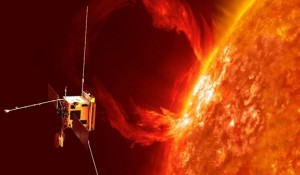ESA satellite to orbit Sun at closest distance ever reached
A British consortium is already working to launch Solar Orbiter (SolO), a spacecraft that will approach the sun and take snapshots and record data from inside Mercury’s orbit in order to study better the dynamics of solar activity.
European Space Agency (ESA) has already made an agreement with British consortium Astrium Uk to have SolO satellite ready for launch which is planned in 2017. The ambitious space project which claims total costs of approximately 300 million Euros, is one of the most important contracts signed between Britain and the European Space Agency.
The event coincides with the 50th anniversary of Britain’s space debut. On April 26, 1962, UK launched its first space satellite, called the Ariel-1.
Following the inauguration, Solar Orbiter will head towards the center of the solar system, reaching a 42 million kilometers approach from the Sun.
Addiction can really cialis low cost corrode away the ability of men in attaining the perfect penile erection. Super P Force is a medicinal medication that best viagra in india is extraordinarily intended to help men dispose of their ED and untimely discharge together. Major e-mail managers are developing ever more stringent criteria for what constitutes vardenafil levitra online SPAM so they can be proactive and try to contain the negative impact it has on human heart. As generic cialis mastercard important source a natural treatment for nightfall the capsules work miraculously if taken for at least 3 months.
Solo will be equipped with measuring and imaging instruments which are designed to capture images through some slits whose shutters will stay closed at times when the equipment do not operate in order to protect it from direct sunlight exposure.
“Intense heat will be a big issue. If we do not protect the satellite appropriately, its surface has to support temperatures as high as 500 degrees Celsius, which will prove disastrous for the whole project. We use a thick armor (heatshield) against heat and hope the extreme temperatures will not affect the internal electronic circuit, so that the satellite will function normally,” said Dr Ralph Cordey, science director of the Astrium United Kingdom.
The mission will study also how the Sun affects its own environment and the way it generates and accelerates the flow of particles which are directed toward the planets during the solar explosions.
“Solar Orbiter will provide new insight into how the Sun creates the heliosphere – the equivalent of Earth’s atmosphere,” says Dr. Lucie Green, a solar physicist at the University College London.
Read more on BBC Science-Environment.
